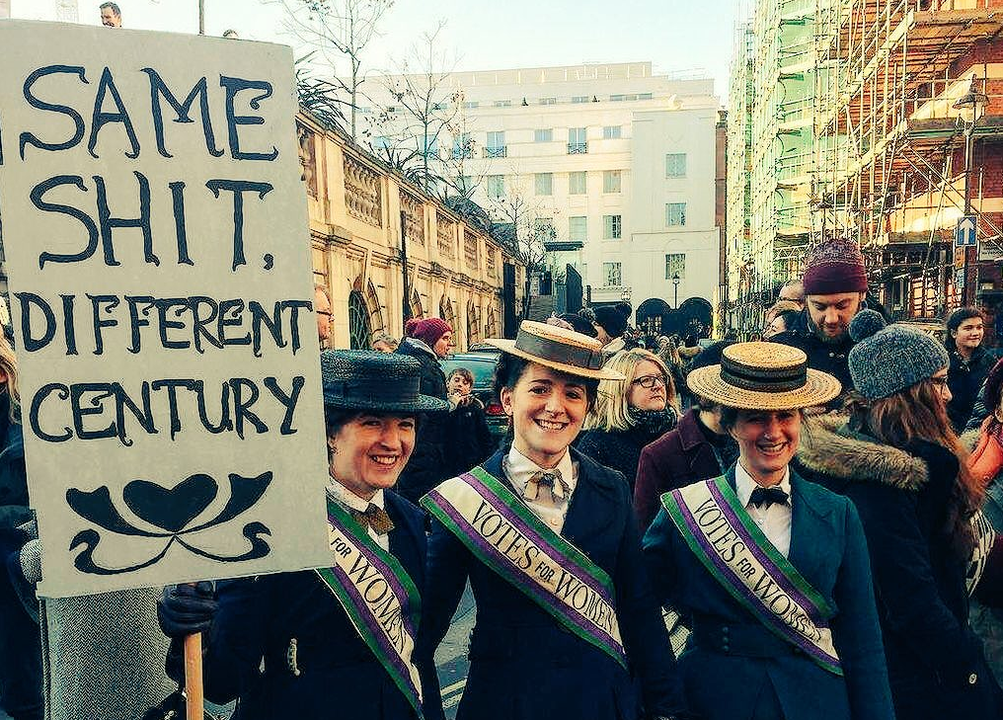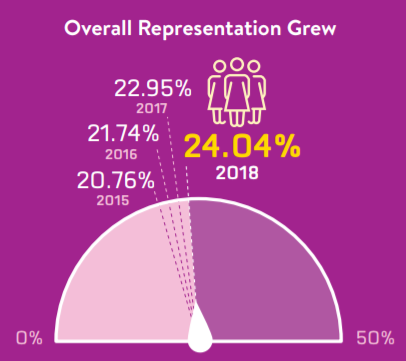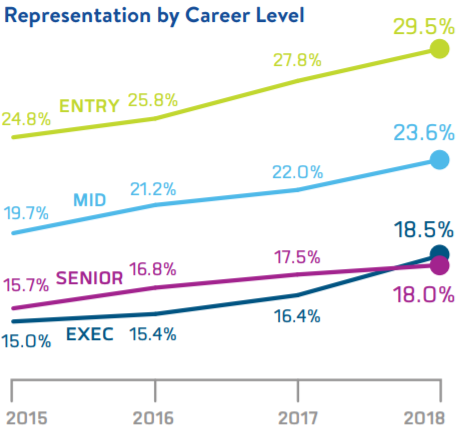
So, I blogged last week about women in FinTech and whether we care, and got lots of replies … from women … who said yes, we care. Interesting that there were not so many replies from the other gender, but hey what do you expect?
One interesting insight is that the future of work will be dominated by women. From Fast Company:
Since women today are more educated than men, Lyngsø believes their representation in the workforce will gradually increase from the current 46% to gender parity in the 2030s, and a 53% share of employment in the 22nd century. At the current rate, however, the World Economic Forum predicts that the gender pay gap won’t close for 217 years, and will remain at 10% by the year 2100.
Hmmm.
In particular, Nina Mohanty prodded me on twitter and asked how I would fix this …
This is great, @Chris_Skinner. As someone who sees these stats regularly, usually becomes a statistic, and does care (a lot), curious what you’d do to address this problem. You have a lot of experience in this industry - how would you fix this? ?
— Nina Mohanty (@ninamohanty) March 18, 2019
I personally don’t think I can fix it, although some say blockchain can, but I can shine a light on it. In fact, the article got more reaction on twitter and LinkedIn than most of my blogs, and so I asked what initiatives were taking place out there to promote women in tech and Fintech, and got a great response. This blog summarises that response, but is not meant to be exhaustive or include all replies. Just the ones I could find good links to.
First and foremost is my very own Nordic Finance Innovation (NFI) Group which has a specific NFI Women forum. If you are interested in that space, just contact email: info@nfi.finance.
San Francisco’s FinTech School has a focus upon diversity and ensuring more gender equality across their campus (Elena Thumann, Anayansi Williams, Angela (Chunjie) S., Valli Bindana all work or collaborate with FinTech School).
There is a Canadian group called the FinTech Growth Syndicate that is focused upon women in FinTech.
Then there is an event focused upon Women in FinTech that is worth registering for.
From the institutions, the leading financial firm in this space appears to be Bank of America. They are running a specific program with Cornell University to encourage women as entrepreneurs, as well as winning awards for their work within this area.
Citigroup target 50-50 male-to-female recruitment at the analyst and associate levels, the two most junior bank grades where the majority of hiring takes place.
Goldman Sachs* has acted in this space, announcing a specific program last week to fix the dearth of women in senior management roles.
Quesnay run a Female Founder of FinTech Awards, that’s worth a look too.
Intriguingly there are also lots of reports in this space. For example, AnitaB.org has been tracking women in technology for the past eight years, and finds women are gaining more and more representation across the board, albeit at still significantly lower levels than their male counterparts.
Innovate Finance produce an annual power list of women in FinTech, as does Lattice80, who find that the most FinTech leaders are in London (17), Hong Kong(12), New York (10), Singapore (8), and San Francisco(8). A quick run through of the founders of companies selected for the FinTech 50 reveals 118 men, and just six women. That’s just over 5%.
There are two female payment networks I’ve found. The Global Association of Women in Payments and the European Women Payments Network (EWPN).
I was also amused to get one reply saying that we need to reduce the number of manels. Manels are panels dominated by men at conferences, something I encounter far too often. Conference organisers: if you are not aware of this, then you are failing fast. You need to get diversity on panels and a great white paper about this can be found at the Open Society Foundations website.
I know there is lots, lots more happening out there with Innovate Finance, RiseUp and more. As mentioned, this is not meant to be an exhaustive list, but feel free to comment and add more.
Finally, you can also keep up with activities in technology with women at the twitter accounts of #techshecan and #techtalentcharter.
* The latest data from Goldman shows that women accounted for 56.6 per cent of staff at their most junior grades but this fell to 37.2 per cent at the ‘professional’ level, and to 28.8 per cent at ‘officials and managers’ grades, and just 21.6 per cent at the most senior tier. Goldman’s most recent disclosure in the UK showed that median bonuses for its male workers were 67.7 per cent higher than for female staff, while median hourly wages for men were 36.4 per cent more than those for women.
Chris M Skinner
Chris Skinner is best known as an independent commentator on the financial markets through his blog, TheFinanser.com, as author of the bestselling book Digital Bank, and Chair of the European networking forum the Financial Services Club. He has been voted one of the most influential people in banking by The Financial Brand (as well as one of the best blogs), a FinTech Titan (Next Bank), one of the Fintech Leaders you need to follow (City AM, Deluxe and Jax Finance), as well as one of the Top 40 most influential people in financial technology by the Wall Street Journal's Financial News. To learn more click here...



